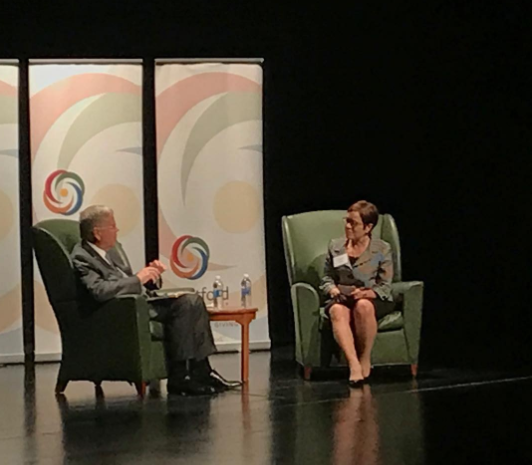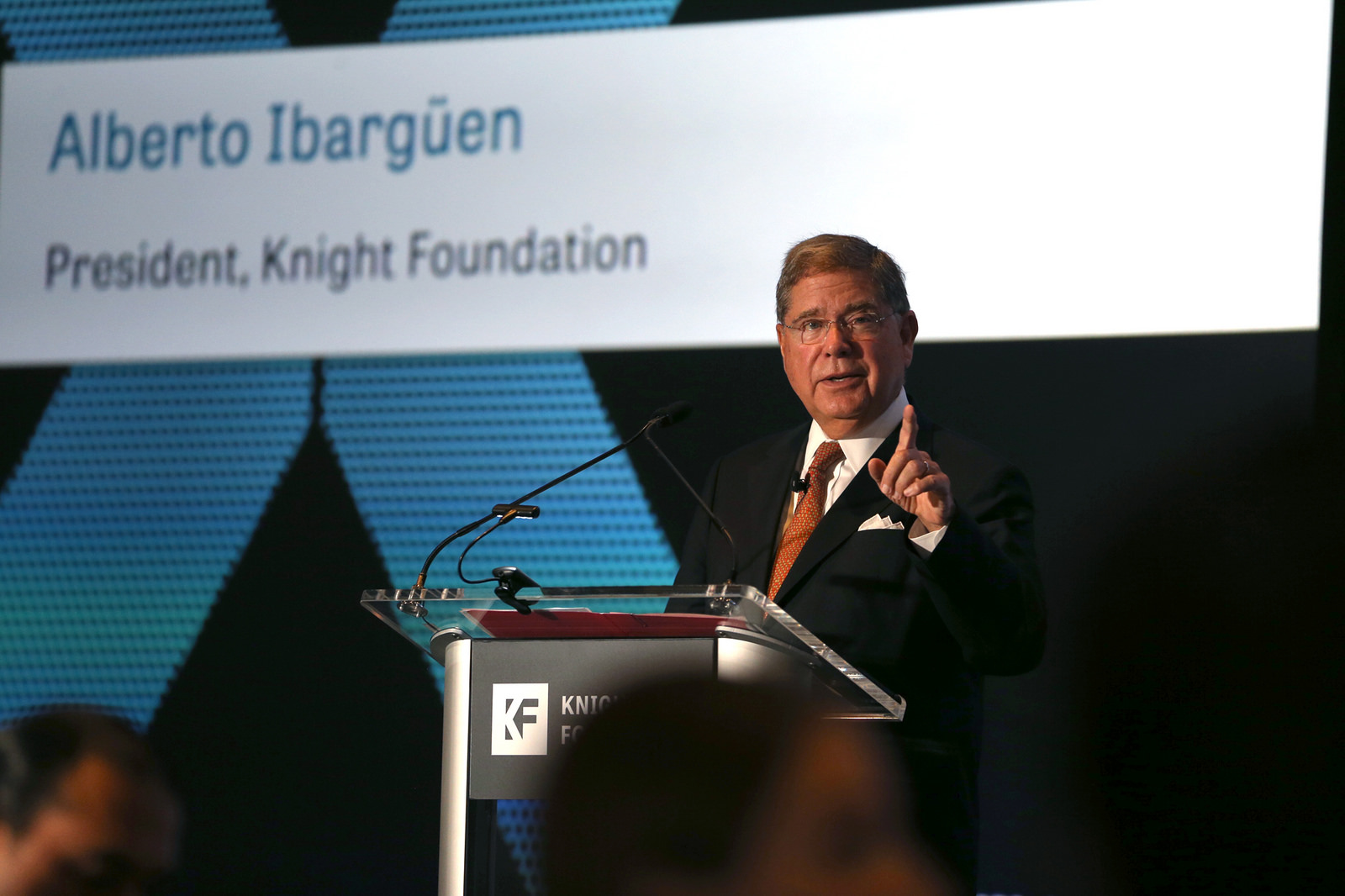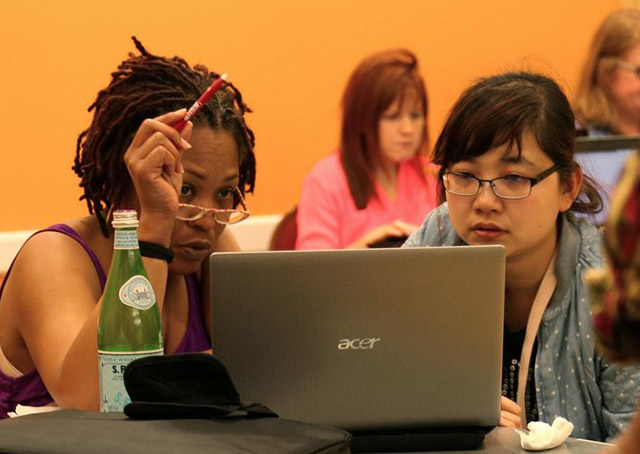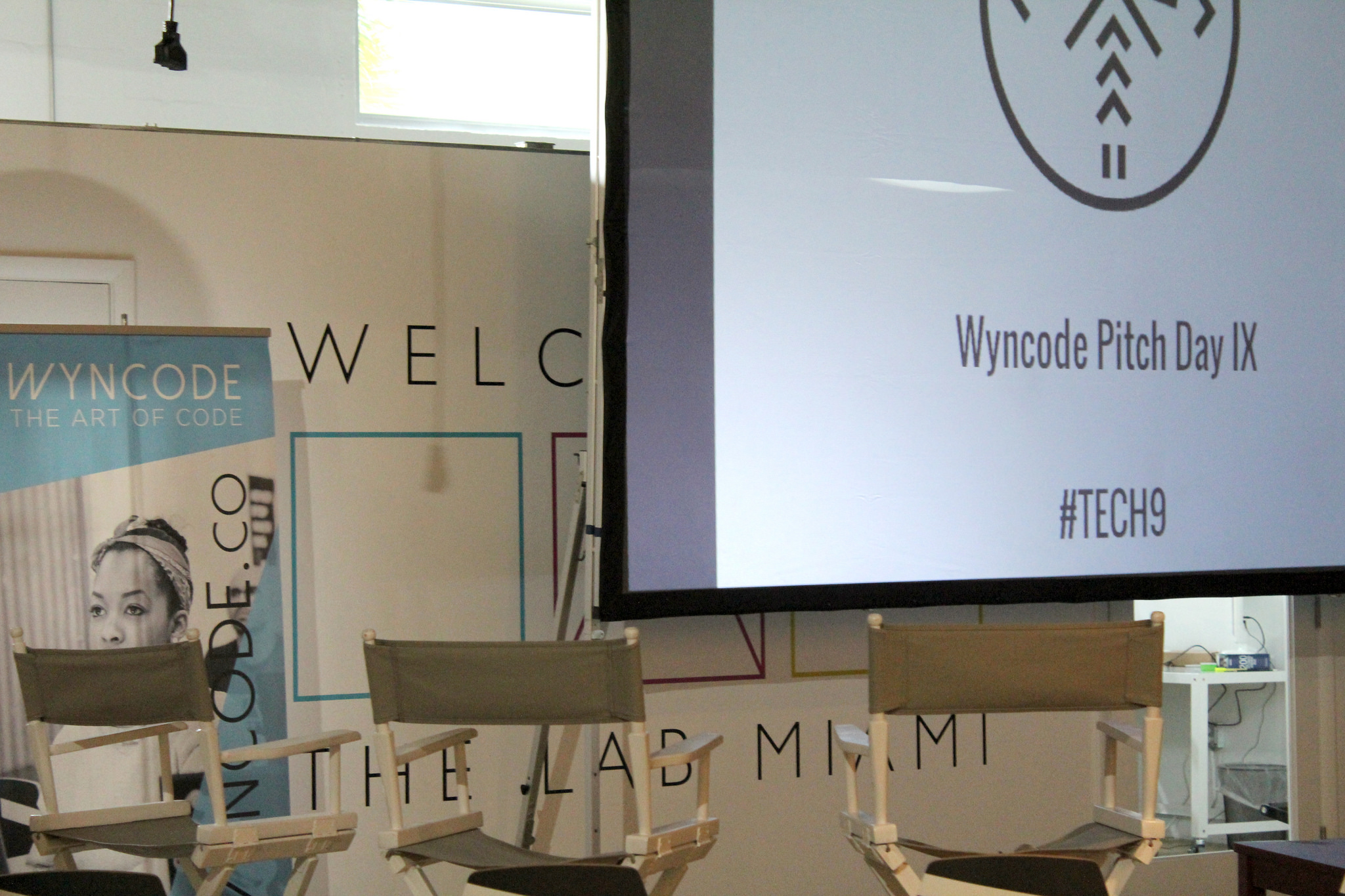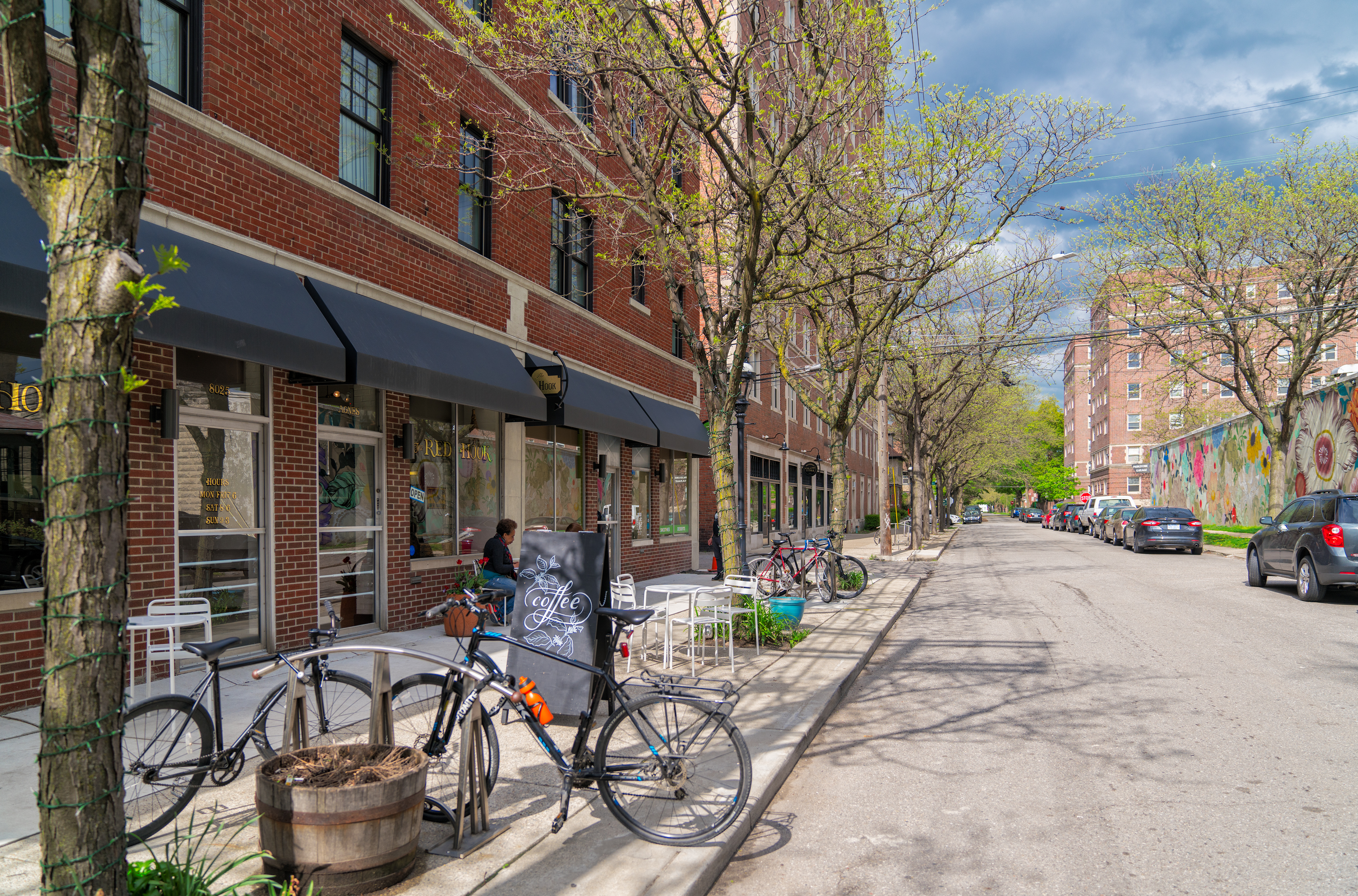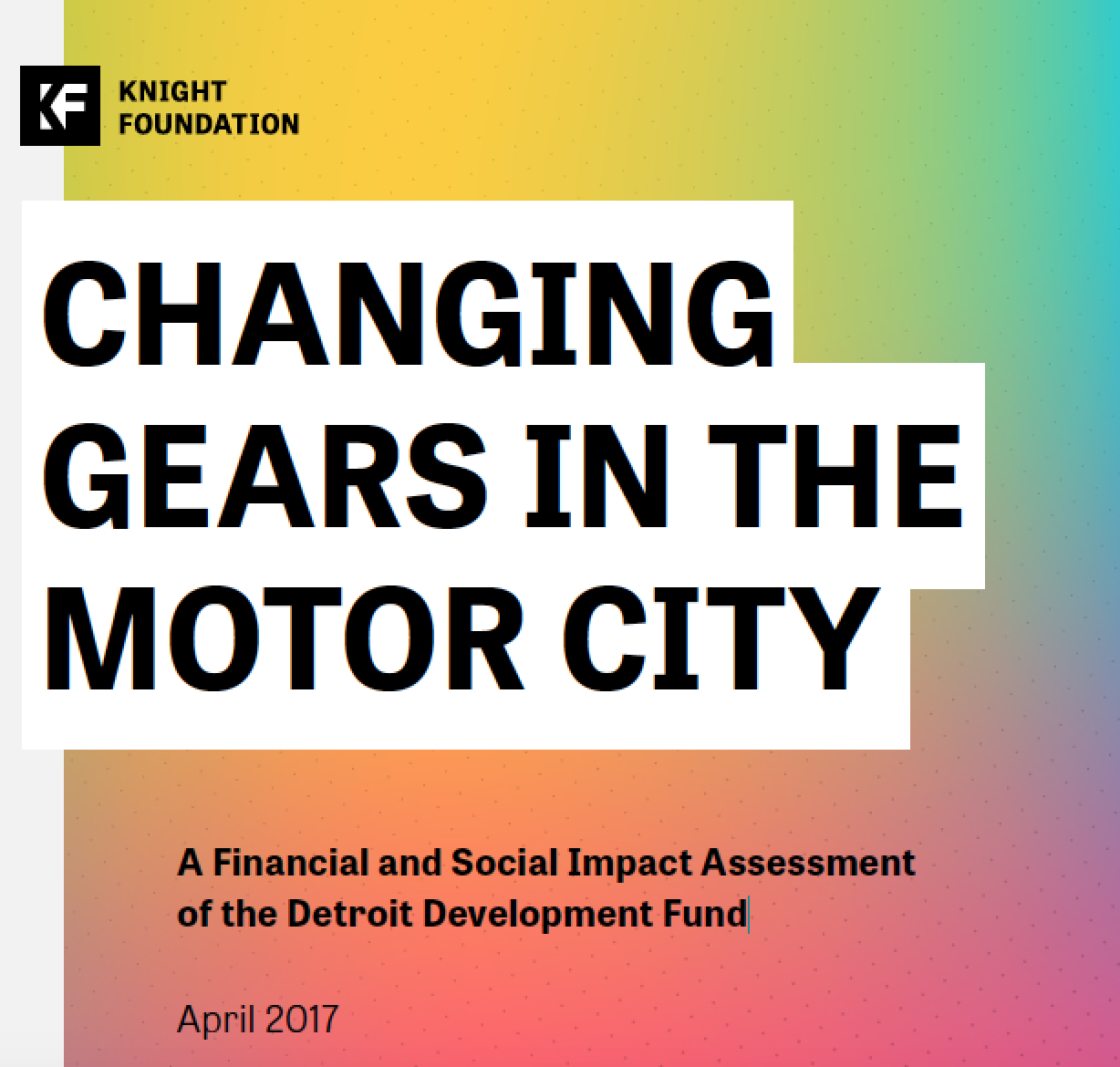To encourage local employers to expose new employees to city neighborhoods as places to live, work, and play.
Program Area: Community Impact
Watch the 2017 Personal Democracy Forum live stream.
Over the past few months we’ve seen a surge in civic activism in communities across America. From the history-making women’s march to the march for science, ordinary people have begun to get more involved in attempting to shape the policies and decisions that affect their lives. This year, Knight Foundation is sponsoring the Personal Democracy Forum as it explores how we can strengthen our democratic institutions and civic life.
This annual conference will bring together civic leaders, technologists, journalists, and others to discuss society’s most pressing issues. Speakers such as New York Sen. Kirsten Gillibrand, New Jersey Sen. Cory Booker, net neutrality expert Tim Wu, and other civic leaders will take to the stage this year. Broad topic areas being explored include civic technology, ideas and provocations, media Innovation, and grassroots and digital organizing.
As a foundation that firmly believes that a healthy democracy requires informed and engaged communities, we are supporting the following two panels at this year’s conference:
Thursday, June 8, 4 – 5 p.m.
“Resourcing Independent, Trustworthy Journalism,” Kimmel Center Room 907
- Jennifer Fiore, co-founder, Factual Democracy Project
- Sarah Bartlett, dean, CUNY Graduate School of Journalism
- Bill Frischling, co-founder and CEO, FactSquared
- Jay Rosen, journalism professor, New York University
- Wendell Potter, founder, Tarbell
Thursday, June 8, 5:15 – 6:15 p.m.
“Technopoly and Its Discontents: What to Do About Big Media Platforms,” Kimmel Center Room 803
- Lina Khan, legal fellow, New America
- Sabeel Rahman, assistant professor of law, Brooklyn Law School
- Nicco Mele, director, Shorenstein Center on Media, Politics and Public Policy, Harvard Kennedy School
- Tim Wu, professor, Columbia Law School
These conversations will explore ways to restore trust in quality journalism and the role that technology platforms play in the information age, a topic Knight Foundation recently explored through a Prototype Fund open call for ideas to address concerns about the spread of misinformation, which received more than 800 applications. The winning ideas will be announced at the Investigative Reporters and Editors annual conference in Phoenix on June 22. At this year’s Personal Democracy Forum, we look forward to continuing the conversation around these issues and working with civic leaders to strengthen our communities as well as our democracy.
For a full schedule of events, click here.
Eva Pereira is a technology innovation associate at Knight Foundation. Email her via [email protected] and follow her on Twitter @EvaNPereira.
r
-
Arts / Article
-
Community Impact / Speech
-
Community Impact / Speech
To provoke dialogue and cultural exchange around immigration and race in Philadelphia with a public art installation that displays youth expressions of identity in a central public space.
Josie Goytisolo is founder and CEO of CODeLLA, a technology entrepreneurship and coding immersion program for Latina girls ages 8-12. Today, Knight Foundation is announcing $100,000 in new support for CODeLLA over two years.
We created CODeLLA in December 2013 to bridge the skills and opportunity gap experienced by underserved Latina middle school girls in our Miami community. Now, with new support from Knight Foundation, we’re looking forward to expanding our work and providing more girls with a foundational knowledge of coding, developing their ability to think critically and helping them work collaboratively to build apps and businesses that solve problems in their communities. CODeLLA’s third cohort—our eight-week summer immersive coding and entrepreneurship camp—starts at Centro Mater, a best practice community center in Little Havana on June 12.
More than 160 girls have gone through our program since its inception. Our goal is to inspire Latina students to enter science, technology, engineering and math (STEM) fields. Presently Latinas represent 3 percent of our nation’s STEM workforce.
According to the U.S. Department of Labor, there will be 1.1 million computing-related jobs by 2024, but, as of 2015, only 1 percent of those jobs were held by Latinas. Every company today is a technology company and the majority of jobs available in the next decade will require middle skills—more than a high school education but less than a four-year degree—to meaningfully engage professionally. Unfortunately, most of the families we work with don’t know this.
One in 4 female students attending public schools in America are Latina. However, a fourth of Latinas nationally live below the federal poverty level and more than half live at levels very close to poverty. The majority of the students who attend our camp and after-school activities live in the Little Havana area where approximately 43 percent of the residents live in poverty.
Our students have extremely limited access to 21st century learning opportunities during the school year and summer due to costs associated with specialized learning, a lack of courses offered in the middle schools they attend and a shortage of certified teachers to teach the coursework.
Our mostly Spanish-speaking immigrant parents need help navigating an educational landscape they are mostly unfamiliar with as well as mastering the tools they need to better engage with their children’s teachers. The families we serve are mostly disconnected from educational pathways and the skills, credentials and certifications their kids need to compete in a global workforce, or the scholarships and services that can help them get there.
Most of the families we work with do not have computers at home. Our soon-to-be-produced podcasts will educate and provide resources for underserved parents on 21st century skills, digital citizenship, and local, national and global emerging tech ecosystems and labor markets—and how to compete in them in a meaningful way.
We equip our students with a foundational competency in computer science that enhances their future STEM studies; we use research-based curriculums from organizations such as Common Sense Media and code.org. We have had several successes. We have grown CODeLLA outreach programs at two local Miami-Dade County public schools, Citrus Grove and Hialeah Gardens middle schools. We successfully produced a summer game design camp at Barry University and provided scholarships to 14 underserved middle school girls.
In November 2016, CODeLLA successfully produced the inaugural She Innovates Tech conference and app competition in partnership with the Center for Computational Science at the University of Miami with more than 400 girls from Title 1 schools in Miami-Dade County. It was the first conference of its kind in our community. More than 25 female founders of technology startups and more established companies, scientists and developers inspired the students. The event featured plenary sessions, interactive breakout sessions and an app showcase with the top six teams from local Miami-Dade County public middle schools who pitched their apps solving a problem in our community. The winning middle school team had their apps built out.
This summer our campers will again meet female founders, innovators, developers and engineers who look like them. Being culturally competent is critical to providing programming in a relevant way to our girls and their parents. The language we use, the selection of teachers who look like them and understand the environment the girls live in has been critical to our success.
Madelyn Llanes, executive director at Centro Mater, summed it up like this: “CODeLLA has been an extraordinary experience for our girls. Not only were they getting coding skills; they were also part of a collaborative team which created a sense of community and family. I have witnessed their growth throughout the camps and the conference. It has truly been an enlightening and rewarding experience for all of us at Centro Mater.”
For more about CODeLLA, visit codella.org, and follow @codellainnovate and @JosieGoytisolo on Twitter.
r
-
Community Impact / Article
-
Community Impact / Article
-
To drive creative problem solving in South Florida by expanding the maker movement through several large events and hands-on learning opportunities, organized by MIAMade.
To increase vibrancy and connectivity in Charlotte by turning the Charlotte Rail Trail’s last remaining vacant space into a lively place to connect with nature and neighbors.
To advance a more bike friendly community in the Historic West End neighborhood by supporting Southminster’s launch of a Cycling without Age chapter.
To advance public life and create more well-designed public spaces in San Jose by recruiting a City Designer with urban design, planning and transit-oriented development expertise to initiate a long-term Urban Design Agenda for San Jose.
To enliven and strengthen public life in downtown San Jose by supporting the transformation of vacant commercial sites into affordable arts and community spaces.
DETROIT— June 1, 2017 — Detroit’s effort to focus targeted, strategic reinvestment in city neighborhoods has received a significant boost from support awarded by the John S. and James L. Knight Foundation and the Ford Foundation.
Knight Foundation has invested $1.5 million over three years in the Strategic Neighborhood Fund, a public-private partnership between the City of Detroit and Invest Detroit. This initiative is working to show that neighborhood redevelopment can be done in financially sound, sustainable and inclusive ways in the city. The Ford Foundation, as part of its larger commitment to an equitable revitalization, has awarded $1 million to the effort.
Initially, the neighborhood reinvestment is focused on three areas of the city: the West Village on the city’s lower east side, the Vernor Highway corridor east of Clark Park in southwest Detroit and the Livernois-McNichols area of northwest Detroit.
Developments in these neighborhoods include a mix of new commercial and residential projects, rehabilitation of existing residential properties and, in the Fitzgerald Neighborhood on the northwest side, a quarter-square-mile of blight-free residential homes with new green recreation space, community gardens, orchards and a walking path connecting the University of Detroit Mercy to Marygrove College.
“We are deeply appreciative of the commitment of Knight Foundation and the Ford Foundation to Detroit’s strategic plans for revitalizing neighborhoods that suffered disinvestment for too long,” said Detroit Mayor Mike Duggan. “The foundations’ leaders understand, as Invest Detroit does, that for the city’s recovery to be sustained and inclusive, it must focus on the needs of longtime residents who never gave up on the city. We’re making the case that neighborhood reinvestment works in Detroit.”
The Strategic Neighborhood Fund is a more than $30 million public-private partnership that is part of a broader vision for stabilizing Detroit neighborhoods with targeted reinvestment including new and rehabilitated mixed-income housing and new commercial developments designed to enhance neighborhoods for existing residents and draw new residents and businesses. The redevelopment efforts are driven by the needs of neighborhood residents who participate in extensive community meetings that guide the city’s planning.
“Building a network of thriving neighborhoods in Detroit is essential to attracting and keeping talent in the city, and creating new economic opportunities for all,” said Katy Locker, Knight Foundation program director for Detroit. “The Strategic Neighborhood Fund will help support the growth of more small businesses in Detroit, bring people of different backgrounds and income levels together, and create more of the kind of places where people want to live.”
“We are pleased to partner in this potentially game-changing initiative to ensure the revitalization of the city of Detroit is shared across neighborhoods and to all those committed to the continued ascension of this great city,” said Darren Walker, president of the Ford Foundation. “I commend the Mayor and his team for understanding the importance of capital flowing to all corners of the city for a true resurgence and equitable recovery.”
Detroit’s goal is to expand the neighborhood redevelopment and community planning to an additional seven areas, spanning more than 50 neighborhoods, over the next three years. In addition, Invest Detroit will target seven microdistricts within these areas in a more focused fashion.
The support further builds on the $10 million previously awarded to the Strategic Neighborhood Fund by JP Morgan Chase and the Hudson-Webber Foundation. It also adds to funding to the city of Detroit to implement the national Reimagining the Civic Commons initiative, a partnership between Knight Foundation, The Kresge Foundation, The Rockefeller Foundation and The JPB Foundation. The initiative aims to counter economic and social fragmentation by revitalizing and connecting public spaces — parks, plazas, trails, libraries.
The investment aligns with previous support from Knight Foundation and Ford Foundation for economic development initiatives in Detroit including the New Economy Initiative, Motor City Match and the Detroit Development Fund.
About the John S. and James L. Knight Foundation
Knight Foundation is a national foundation with strong local roots. We invest in journalism, in the arts, the uses of digital technology in the delivery of news and information, and in the success of cities where brothers John S. and James L. Knight once published newspapers including the Detroit Free Press. Our goal is to foster informed and engaged communities, which we believe are essential for a healthy democracy. For more, visit knightfoundation.org.
About the Ford Foundation
The Ford Foundation is an independent, nonprofit grant-making organization. For more than 80 years it has worked with courageous people on the frontlines of social change worldwide, guided by its mission to strengthen democratic values, reduce poverty and injustice, promote international cooperation, and advance human achievement. With headquarters in New York, the foundation has offices in Latin America, Africa, the Middle East, and Asia.
For more, visit fordfoundation.org.
About Invest Detroit
Invest Detroit is a key leader in the revitalization of the City of Detroit. Actively investing in the city for over twenty years, Invest Detroit is a financial catalyst serving the Detroit community with over $230M in capital and tax credit allocation under management. With funds spanning real estate development, commercial lending and venture capital, Invest Detroit is a 501(c)(3) Community Development Financial Institution developing innovative solutions to economic development challenges in this region. Working in collaboration with private, public and philanthropic partners, Invest Detroit promotes the creation of jobs, density and better quality of life for underserved communities.
Contact:
Anusha Alikhan, Communications Director, Knight Foundation, [email protected], 305-908-2677.
Dave Blaszkiewicz is president and CEO of Invest Detroit, a leading source of private-sector financing to support economic and community development in Detroit and a partner in the Reimagining the Civic Commons national initiative.
With Invest Detroit’s 20-year history of economic development, we’ve learned that sustainable revitalization is based on two key pillars: leverage and leadership. Leverage is created by focusing the toolkits of collaborative partners on development strategies; and leadership is moving the process forward while being aligned with community partners and objectives. In Detroit, this premise is well represented by initiatives where the public, private and philanthropic sectors have worked together to provide the leadership and support which today is driving momentum in Greater Downtown.
As we build on these successful efforts, we have expanded the areas where we work and are exporting lessons learned to other Detroit neighborhoods. Our goal is to create density, jobs and vibrant walkable communities. That’s why we’re excited that Knight Foundation and Ford Foundation are investing $2.5 million in the Strategic Neighborhood Fund, a partnership between Invest Detroit and the city of Detroit, focusing on three areas: the West Village on the city’s lower east side, the Vernor Highway corridor in southwest Detroit and the Livernois-McNichols corridor of Northwest Detroit.
The $30 million Strategic Neighborhood Fund is targeting these neighborhoods for investment now, with seven more neighborhoods planned in the coming years. We are working with community leaders to enhance commercial corridors, and promote and stabilize commercial real estate projects. Our strategy includes development of mixed-income housing, and enhanced community infrastructure and services such as safety and security enhancements, pedestrian lighting, park improvements, and bike-share programming.
Of equal importance in this effort is our strategic alliance with the city of Detroit. It is the first time since Invest Detroit’s inception that we have formed a formal partnership with the city to attract additional investment, residents and businesses to create momentum for sustainable economic growth.
So, what does this mean for Detroit? Livernois-McNichols offers an instructive example. In this corridor, the Reimagining the Civic Commons initiative connects two anchor institutions (University of Detroit Mercy on the east and Marygrove College on the west) with mixed-use housing, and walkable, safe streets, while introducing an ambitious open-space strategy in the Fitzgerald neighborhood that includes the creation of a new public park.
When you stand at the intersection of Livernois Avenue and McNichols Road you can see evidence of Detroit’s decline resulting from decades of disinvestment. Blocks of well-maintained housing are strewn with vacant lots and blighted homes. Two historic college campuses and the famous Avenue of Fashion, which includes America’s oldest operating jazz club, Baker’s Keyboard Lounge, are interspersed with blocks of empty retail and few people walking the streets. The contrasts are stark. However, this dichotomy also presents a meaningful opportunity to add multifamily housing, stabilize historic buildings and bring new life to vacant storefronts.
Partners committed to the Reimagining the Civic Commons work in the Livernois-McNichols corridor include Invest Detroit, the city of Detroit, two anchor educational institutions, the Detroit Economic Growth Corp., Detroit Land Bank Authority, The Greening of Detroit and Detroit Collaborative Design Center. Live6 Alliance is a strong local partner providing community leadership. These partners are the liaisons to the community and integral to success of large-scale redevelopment initiatives such as Reimagining the Civic Commons.
Through the Strategic Neighborhood Fund, we will devote additional gap financing tools to stimulate multifamily and retail, and in partnership with the city of Detroit, will provide additional subsidies to address the lack of development funding and commercial lending within the city. More than $10 million of the Strategic Neighborhood Fund is targeted for the Livernois-McNichols microdistrict, which will complement the Reimagining the Civic Commons initiative. Additional investment comes from the Fitz Forward partnership, which was awarded a city-issued request for proposals to rehabilitate 115 empty homes and more than 270 vacant lots in the Fitzgerald neighborhoods between the two university anchors.
Collectively, the public spaces in Livernois-McNichols make it an ideal demonstration area for shaping a scalable investment strategy that can be translated to other neighborhoods citywide. Through the Strategic Neighborhood Fund, the coordinated efforts of Invest Detroit and our partners will focus on the creation of vibrant, mixed-income neighborhoods for all Detroiters.
Follow Invest Detroit on Twitter @InvestDet. To learn more about Reimagining the Civic Commons, visit civiccommons.us.
r
-
Community Impact / Press Release
-
Community Impact / Article
-
Arts / Article
-
Community Impact / Report

